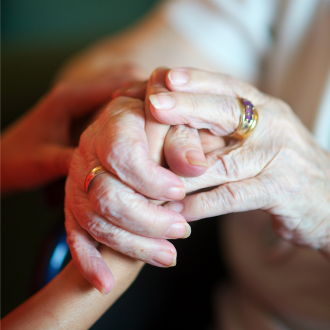GPs are encouraged to allow for uncertainty about when a person in their care is reaching the last days of life, in final guidance issued by NICE that is intended to replace the Liverpool Care Pathway.
The guidelines mark a shift away from making a certain ‘diagnosis’ of dying and emphasise the importance of regular review and assessment once a person is thought to be in the last days of life, NICE advisors said.
They also encourage a more tailored approach to medication for symptom control and anticipatory care.
The final guidelines – which are largely unchanged from the draft unveiled in March – were commissioned after Government advisors ordered the Liverpool Care Pathway should be phased out.
Their independent review concluded the pathway had in some cases been used inappropriately, although this was largely confined to hospitals and the authors of the report praised the record of general practice in caring for the dying.
Dr Adam Firth, a GP and member of the guidelines development group, told Pulse the new NICE guidelines go ‘far beyond’ what the Liverpool Care Pathway advised as a framework for caring for people in the last days of life, in particular the shift away from a ‘diagnosis’ of dying.
Dr Firth said: ‘It goes far beyond what was in the Liverpool Care Pathway – there are elements that would be recognisable but some really important differences, particularly in moving away from the notion that we can confidently diagnose dying, to more of a recognition that there is a continuum, that there is inherent uncertainty – and having open communication about that.’
He added: ‘There are also important elements around symptom control and anticipatory prescribing, moving from a proforma approach for medications to tailored prescribing linked to expected symptom development.’
NICE – Care of dying adults in the last days of life

















